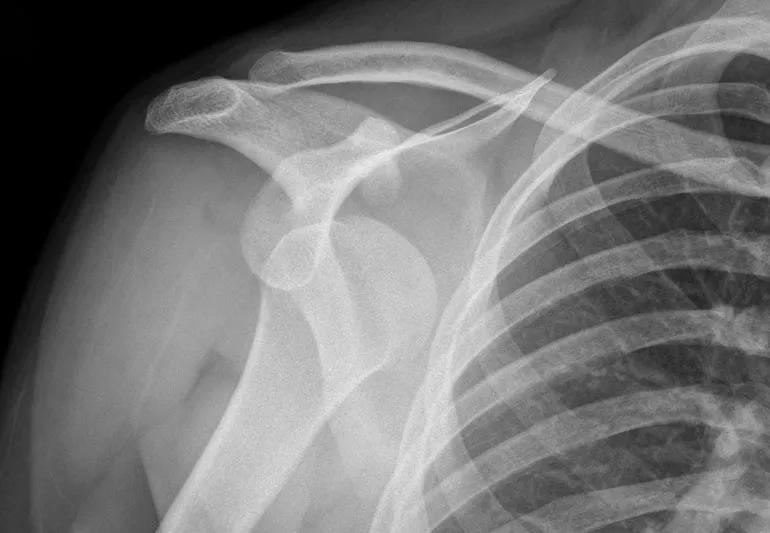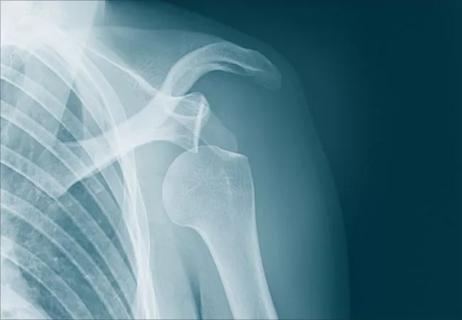Sometimes, it does require surgery

If you ever suspect you have a dislocated shoulder, don’t try to put it back in yourself. If you’re fortunate enough to be somewhere with access to a trained professional, such as a physician or athletic trainer, they may attempt to relocate it for you. This is certainly an urgent situation and warrants a visit to the emergency department.
Advertisement
Cleveland Clinic is a non-profit academic medical center. Advertising on our site helps support our mission. We do not endorse non-Cleveland Clinic products or services. Policy
“The biggest thing we want you to avoid is doing more damage to your shoulder by trying to fix it yourself,” says orthopaedic surgeon Salvatore Frangiamore, MD.
A significant injury causing shoulder dislocation is most likely to happen during a sports injury or a fall. It often occurs when your arm is outstretched and a sudden twisting or jerking motion occurs.
If you play football or participate in contact sports, you’re more susceptible. But it might happen during normal activities in your home — if you lose your balance and extend your arm to grab something to catch yourself, for instance.
“With traumatic injuries, the pain is often severe and there’s up to an 80% chance of recurrence in certain patient populations,” says Dr. Frangiamore.
“Surgery may be necessary for recurrent dislocations or for young athletes who are at higher risk of re-injury,” he adds.
Dislocation can happen without a significant injury if you are very flexible and suffer from atraumatic shoulder instability.
This is especially common in younger people involved in sports requiring more repetitive overhead motion in the shoulder such as swimming, volleyball or tennis, Dr. Frangiamore says.
“The sport may not cause the instability, but it will often uncover it,” he adds.
Advertisement
Those who are overly flexible (who may describe themselves as “double-jointed”) are also more prone to atraumatic shoulder instability.
In other words, your activities may prompt your shoulder to pop out of place or it may happen because of your body’s natural flexibility or looseness. It’s worth noting you don’t actually have double joints but a natural increased flexibility of soft tissue.
Dr. Frangiamore offers these steps for treating a dislocated shoulder:
Through overuse or injury, nearly everyone experiences shoulder pain at some point in their lives. But immediate medical treatment after the injury and follow-up with your doctor can help prevent it from happening again.
Advertisement
Learn more about our editorial process.
Advertisement

Here’s how to loosen up those tight shoulder muscles

Stretching and eliminating stresses on the joint is key to stopping the pain

The short answer from an orthopaedic surgeon

Looking down at your smartphone or computer screen can stress muscles in your neck, shoulders and back

These creams that you apply to your skin can actually help reduce localized pain, swelling and inflammation

While an ultrasound shows your muscles and tendons, an MRI also shows your joint cartilage, bones and heart chambers

Rest, physical therapy, pain relief medication and steroid injections may be able to help instead

Arthritic knees can benefit from bridging, mini squats, balancing exercises and other stretches

The tropical fruit is a good source of antioxidants and vitamin C

Most people fall asleep within 10 to 20 minutes, but if your experience is different, adjusting your sleep schedule may help

Exploring your hidden side can lead to better understanding of what makes you tick